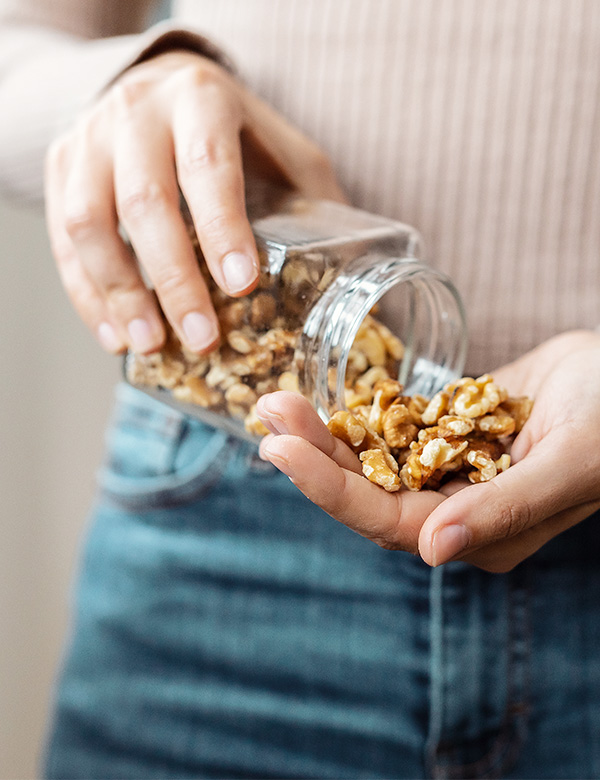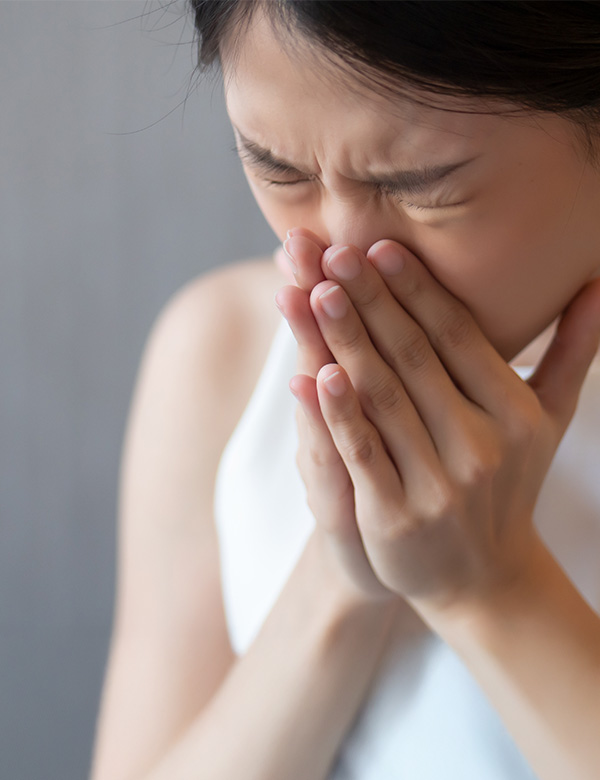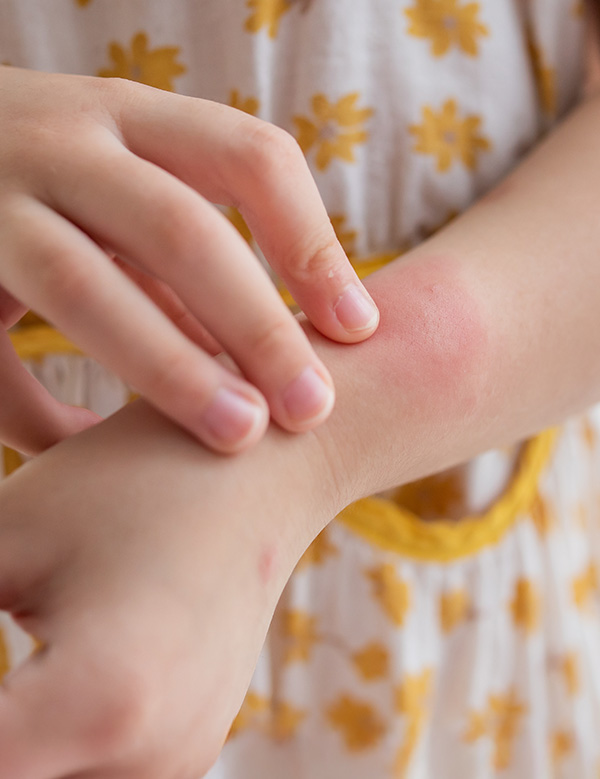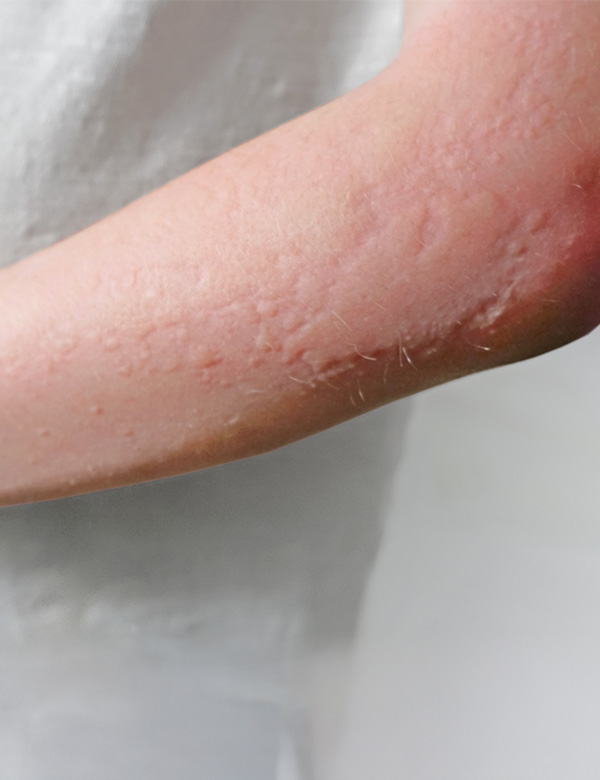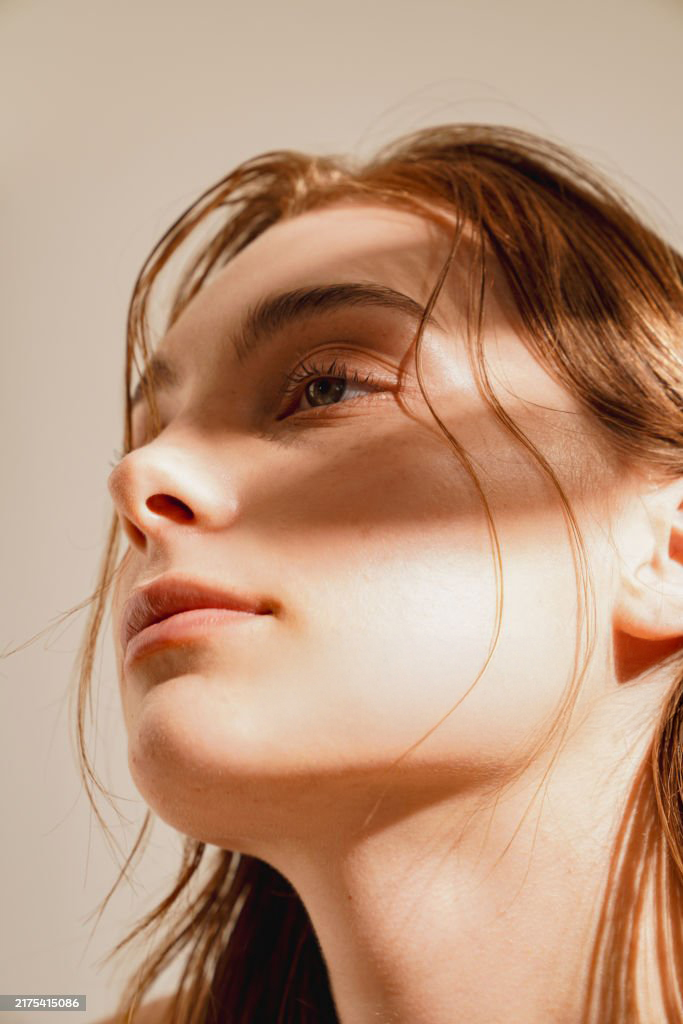Pollen Allergy (Hay Fever)
Diagnosing and treating grass and pollen allergies (hay fever) in children and adults – with an experienced dermatologist at the Derma Medical Clinic in Zurich – Sihlcity
Pollen Allergy (Hay Fever)
Chronische Abszesse und schmerzhafte Knoten durch erfahrenen Hautarzt abklären und behandeln in der Derma Medical Clinic in Zürich - Sihlcity
Identify and treat allergic reactions to grasses and pollen, and prevent follow-up symptoms – with allergy testing, anti-allergy treatment and desensitization therapy
Tests
Allergy testing
Optional: blood test
Assessment
Process
Initial consultation incl. allergy testing
Duration
20–30 minutes
What Is a Pollen Allergy?
A pollen allergy – often called hay fever – means your immune system reacts too strongly to pollen from trees, grasses, or herbs. Even a small number of pollen particles in the air can cause symptoms:
- eyes sticky and watery in the morning
- sudden sneezing fits
- constantly runny or completely blocked nose
- itchy throat or roof of the mouth
Many people affected sleep poorly and feel tired, irritable or unable to concentrate during the day.
Some may also experience breathing problems, like a dry cough during outdoor activities or a tight feeling in the chest. If left untreated, the allergy can lead to allergic asthma.
An allergy check is useful if you …
- every spring experience sneezing fits, itchy eyes or a stuffy nose
- feel tired or irritable all the time during pollen season
- notice your symptoms getting worse over the years or lasting longer
- feel that over-the-counter medicines no longer help
- find it hard to tell the difference between hay fever, a cold, or other irritations
- might develop allergic asthma, for example due to cough or shortness of breath during pollen season
- want a long-term solution instead of just managing symptoms

What Is a Pollen Allergy?
A pollen allergy – often called hay fever – means your immune system reacts too strongly to pollen from trees, grasses, or herbs. Even a small number of pollen particles in the air can cause symptoms:
- eyes sticky and watery in the morning
- sudden sneezing fits
- constantly runny or completely blocked nose
- itchy throat or roof of the mouth
Many people affected sleep poorly and feel tired, irritable or unable to concentrate during the day.
Some may also experience breathing problems, like a dry cough during outdoor activities or a tight feeling in the chest. If left untreated, the allergy can lead to allergic asthma.
Who Should Get Pollen Allergy or Hay Fever Checked and Treated?
An allergy check is useful if you …
- every spring experience sneezing fits, itchy eyes or a stuffy nose
- feel tired or irritable all the time during pollen season
- notice your symptoms getting worse over the years or lasting longer
- feel that over-the-counter medicines no longer help
- find it hard to tell the difference between hay fever, a cold, or other irritations
- might develop allergic asthma, for example due to cough or shortness of breath during pollen season
- want a long-term solution instead of just managing symptoms
Treatment
First, we talk with you about your symptoms, how they’ve developed over time, and possible triggers.
Then we perform a prick test: small amounts of different allergens are placed on the skin of your forearm and gently scratched. After about 20 minutes, we check for any reactions.
If needed, we add a blood test to confirm or explore the findings.
What does hay fever treatment involve?
If you have a confirmed pollen allergy, we explain your next treatment steps:
There are many options – from modern allergy medicines (tablets, nasal sprays, eye drops) to desensitization therapy, which is a long-term immunotherapy.
How Does Hay Fever Treatment Work?
Initial Consultation
We take time to understand your symptoms – or your child’s – in detail. We also consider past reactions and any known allergies.
Allergy Test
We then perform a skin allergy test by applying pollen extracts to your forearm and gently scratching the skin.
Treatment
Based on the results, we tailor treatment – such as anti-allergy tablets, nasal sprays, eye drops, or desensitization therapy.
Support Throughout the Season
Pollen allergies often last for several weeks. That’s why we can continue to support you throughout the pollen season if needed.

At Derma Medical Clinic, allergy treatment is provided by Dr. Markus Dendorfer, dermatologist and allergy specialist.
He has many years of experience in the diagnosis and treatment of allergic conditions – from hay fever to complex allergic reactions.

Dr. med. Markus Dendorfer
Board-certified Specialist in Dermatology & Venereology FMH
What to Expect with Us
Quick assessment
Prick test, lab diagnostics and results – all done by us, with minimal waiting times and no extra visits.
Treatment options
Whether you need help during peak allergy season or want long-term control – we’ll work with you to find a treatment that fits into your life.
Long-term support
Pollen allergies usually follow seasonal patterns. We offer support throughout the season and adjust your treatment if needed.
Everything under one roof
You’ll get diagnosis, medical treatment and cosmetic care all in one place. That means fewer appointments, consistent support and coordinated care – from your first visit to follow-up.
You suspect your sneezing, itchy eyes or stuffy nose may be due to allergies but haven’t been diagnosed yet?
Book an appointment now for allergy testing at Derma Medical Clinic in Zurich – Sihlcity.
FAQ – Common Questions About Grass and Pollen Allergy (Hay Fever)
What is a pollen or grass allergy?
A pollen allergy – also called grass allergy or hay fever – is a reaction to pollen from grasses, trees, or herbs. Symptoms usually appear in spring or summer and affect the eyes, nose, and airways.
What symptoms occur with a pollen allergy?
Typical symptoms of pollen allergy include:
- sneezing, runny or blocked nose
- itchy, watery or red eyes
- coughing, scratchy throat
- tiredness and trouble concentrating
- in some cases: allergic asthma (e.g. shortness of breath or chest tightness)
How can I tell the difference between hay fever and a cold?
Hay fever starts suddenly – often when the weather is nice and pollen levels are high. The nose runs, often with clear watery mucus, but there’s no fever. Symptoms last for weeks and return each year. A cold usually comes with fever, sore throat or body aches and clears up within a few days.
How is a pollen allergy diagnosed?
At Derma Medical Clinic, we use different allergy tests, including:
- Prick test (a quick skin test for common pollen)
- Blood test for specific IgE antibodies
- if needed: testing the nose or eyes with allergens to observe reactions – always under medical supervision
How is hay fever treated?
Treatment depends on how severe your symptoms are and your daily life. Options include:
- symptom relief with modern antihistamines, nasal sprays or eye drops
- avoiding allergens – e.g. using pollen calendars and filters
- Desensitization to gradually reset your immune system – by tablet or injection
What is desensitization (also called hyposensitization)?
Desensitization is the only treatment that targets the cause of the allergy. Over about 3 years, your immune system gets slowly used to the allergen – with tablets under the tongue (SLIT) or injections under the skin (SCIT). Goal: fewer or no symptoms long term.
What’s the difference between desensitization and hyposensitization?
In medical terms, desensitization and hyposensitization mean the same thing: a long-term treatment to help the body tolerate allergens better. “Hyposensitization” is the more technical word, while “desensitization” is more common in everyday language.
When should I see a doctor for hay fever?
If your symptoms are severe, last a long time or affect your quality of life. Also see a doctor if your eyes or chest are affected (e.g. cough, shortness of breath) – this can help prevent allergic asthma.
Can children be treated too?
Yes. Many treatments – like anti-allergy eye drops or nasal sprays – are suitable for children. Desensitization can begin as early as preschool age, if medically appropriate.
What can I do myself if I have hay fever?
- Use a pollen calendar and air your home only when pollen levels are low
- Keep clothes out of the bedroom and wash your hair in the evening
- Avoid walking in nature when pollen levels are high
- Use pollen screens and air filters
